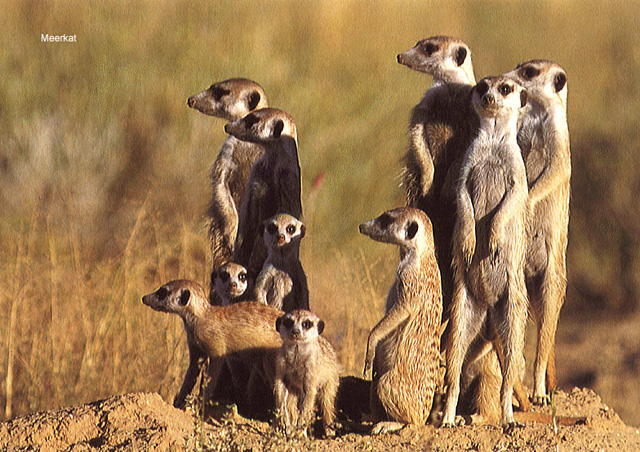When I was in college I had the good fortune of living in Tanzania, East Africa, for a year. While there, I was occasionally asked to “guide” visitors through some of the world-famous national parks and game reserves in that area, including Serengeti, Lake Manyara, Amboseli (actually in Kenya) and the Ngorongoro Crater. Having the opportunity to observe the many varieties and species of animals in their natural habitat was an experience I will always treasure!
Serengeti National Park is famous for its vast plains covered with herds of migrating grassland antelopes, including wildebeests (gnus), hartebeests and various gazelle species. Several times while observing these animals we saw lions attack and kill one or two of the young or straggling members of the herds. What fascinated me at the time was how other antelope would watch curiously from a fairly close distance or nonchalantly graze near the kill site while the lions finished off their recently deceased colleagues. They seemed to sense that in this game of chance they were now safe.
I was reminded of this later when I lived in Los Angeles. The daily commute to work on the L.A. freeway system was also a community game of chance. We would all drive as fast as we could, sensing that sooner or later someone would get into a crash and we’d all have to stop and probably be late to our appointments. Then we’d curiously crawl empathetically around the crash site and speed off again on our important business, thankful, for the moment that we were safe.
With a highly probable impending disaster, no individual antelope or Angelino ever seemed to feel that they were going to be the next victim. There was no need to change behavior. After all, what are the odds of getting killed when there are thousands of other wildebeests around or 10 million other crazy drivers on the freeway?
It seems that we’ve built risk denial into many of our cultural rituals and even base public policy on it. For example, we know that there are individuals among us who cannot tolerate the use of alcohol, but we bet that it won’t be us or one of our family members, and therefore we joke about how much college students drink, glorify the use and abuse of alcohol on television and in the movies, and set policies around its sale and distribution that we know won’t really keep it away from the kids. Similar arguments could be made for such things as cigarettes, handguns, marijuana use, unprotected sexual activity and the use of bicycle or motorcycle helmets. We curiously, and perhaps empathetically, watch as the young or the stragglers are destroyed, but quickly speed off again on our important business as soon as we can.
But there are animals on the African savannah that live differently, meerkats. Everybody loves meerkats. They are cute, cuddly-looking and very friendly, sociable animals. They’ve starred in at least two of their own movies (Meerkat Madness (2001) and The Meerkats (2008)), and have had their own television series on the Animal Planet network (Meerkat Manor and Meerkat Manor: the Next Generation (2005 – 2008)). Timon, one of the heroes in Walt Disney’s The Lion King movies, is a meerkat.
One of the most distinctive characteristics of meerkats, however, is their custom of assigning sentinels for their colonies. While the other meerkats are busy playing, exploring, hunting and gathering around the colony’s den, one or more of the adult meerkats stand at attention and scour the landscape for danger. When something unknown or threatening appears, they loudly signal the others to seek the safety of the colony’s shelter.
On June 15, 2009, in a speech at the annual meeting of the American Medical Association, President Barack Obama appealed to the physicians of this nation to join him in safeguarding the community by acting as medical sentinels. Part of his speech was directed at those of us in preventive medicine and public health: “Building a health care system that promotes prevention rather than just managing diseases will require all of us to do our parts. It will take doctors telling us what risk factors we should avoid and what preventive measures we should pursue…. Our federal government also has to step up its efforts to advance the cause of healthy living. Five of the costliest illnesses and conditions – cancer, cardiovascular disease, diabetes, lung disease, and strokes – can be prevented, and yet only a fraction of every health care dollar goes to prevention or public health. That’s starting to change with an investment we’re making in prevention and wellness programs that can help us avoid diseases that harm our health and the health of our economy.”
As I read the transcript of this speech, my mind went back to the meerkat sentinels on the Serengeti plains. They instinctively worked to prevent the injury and death of the members of their community. It’s funny, though – I don’t recall ever hearing anyone refer to those watchful lookouts as “do-gooders” or advocates of “nanny government.”
